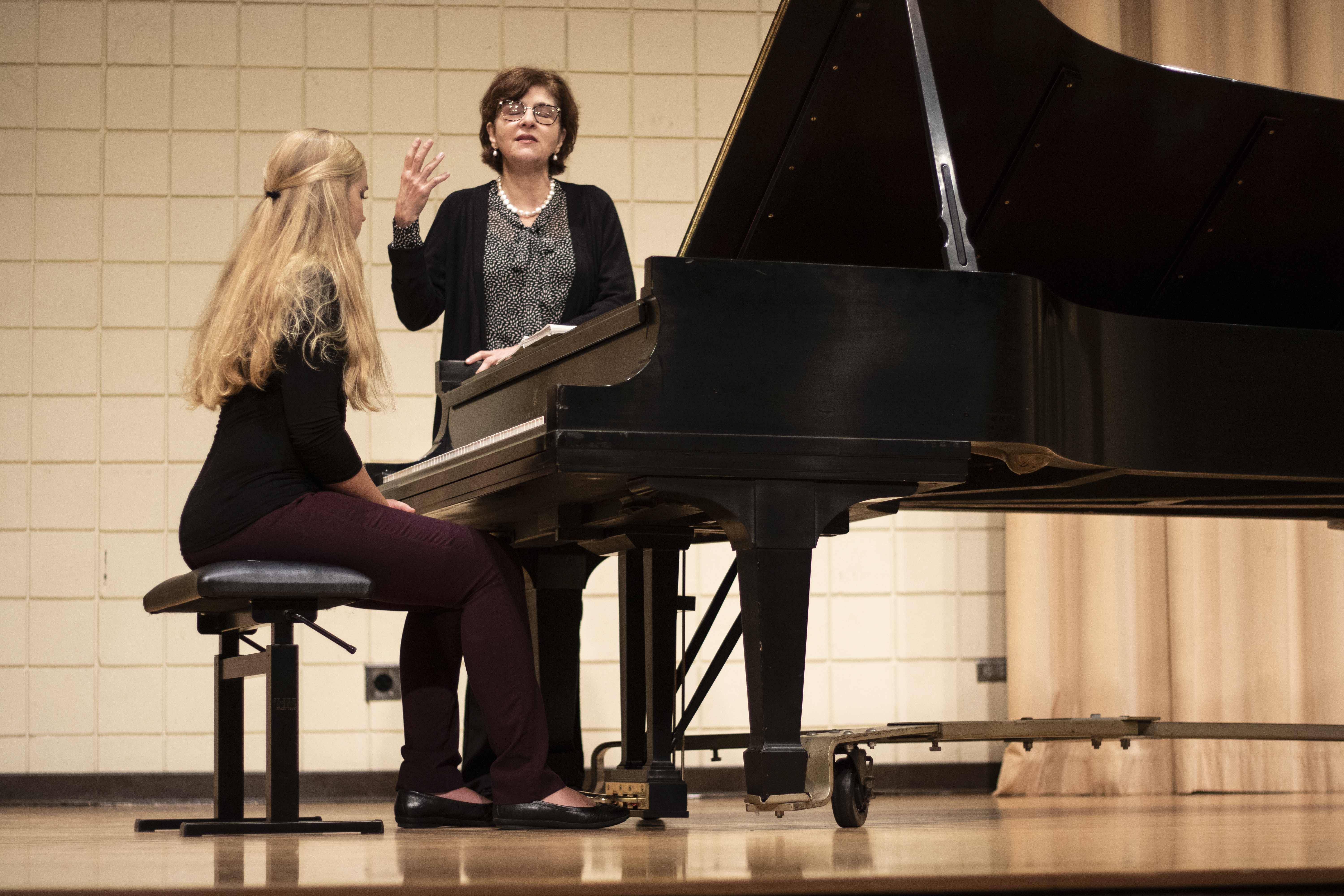
Brazilian pianist performs and teaches at USD
Graceful fingers fluttered over black and white keys and toes danced on pedals as her body swayed with the music rising from the piano Monday evening.
Cristina Capparelli Gerling, a Brazilian pianist and academic, visited USD to perform and critique students during her stay. As an artist, she has traveled the world to perform and teach piano performance.
Capparelli performed her “Hommage A Villa-Lobos” Monday night in Colton Hall for the community. She chose pieces from Bach, Claude Debussy, Chopin, and Heitor Villa-Lobos to play.
As a leading figure in Latin American piano music, she chose to play “Bachianas Brasileiras No. 4” as one of the pieces from Villa-Lobos for her performance.
“The Bachianas Brasileiras are a way of Villa-Lobos saying ‘I belong right up there with the great masters’,” Capparelli said.
Villa-Lobos is a composer from Capparelli’s native Brazil. He’s considered the country’s most famous composer and was inspired by the rainforest, indigenous populations of Brazil, and Brazilian culture.
Alessandra Feris is an assistant professor of piano performance for the music department and is also Brazilian.
“So basically (Villa-Lobos) was this big name who claimed that Brazil was his bible,” Feris said.
Two graduate and undergraduate students majoring in piano performance played for Capparelli during a “masterclass.” These are lessons that are open for the public to watch and learn as the guest teaches USD students.
“I feel really fortunate to have the opportunity to bring her to USD because I think it’s going to be really great for our students,” Feris said.
Pedro Medeiros said that he gained knowledge by playing for Capparelli and watching her critique his fellow piano performance classmates.
“I think it’s very important to do that (because) you see different points of view, more than (just) your professor’s,” Medeiros said.
Feris said that musicians are always looking to grow in their talent and that having different perspectives and opinions is important.
“There’s not right and wrong in music, it’s always different,” Feris said. “So by having guests from other countries, from other places… we’re always going to learn so much.”
She also said that it’s not only the students learning, but her as well.
“I feel the most fortunate here because every guest that comes here I learn so much, and I feel so thankful for that,” Feris said. “That’s the best learning experience because we share ideas, because we compare things.”
Nicole Santos, an undergraduate piano performance major who simply watched the masterclass, said that she learned a lot because of the similarities between her music and a piece that was performed by another student.
“I found it very interesting,” Santos said. “I got to see a lot of similarities with the other (performer’s) playing and get some ideas for my own practice.”

